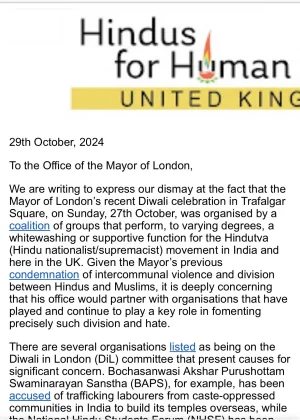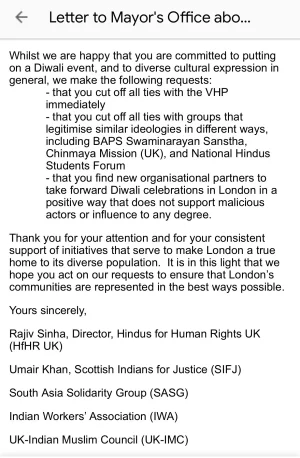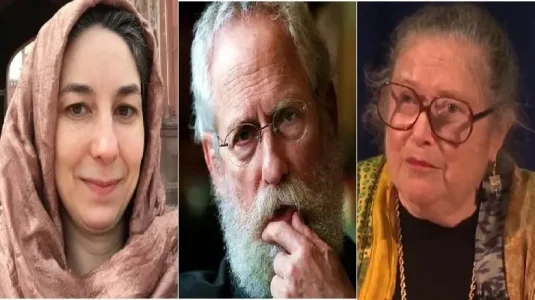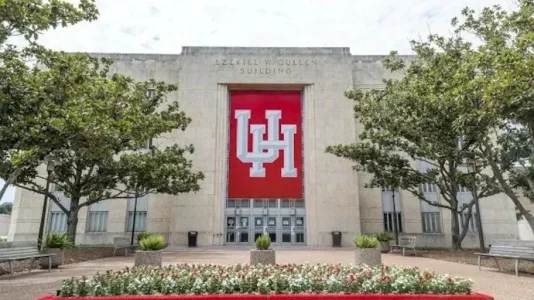Part 1
Harvard’s Pakistan Conference: How Academia Whitewashes Terrorism
Elite Western universities, while claiming to uphold free speech and diversity, are increasingly enabling anti-Hindu propaganda and glorifying terror-linked ideologies—turning campuses into breeding grounds for soft radicalism under the guise of academic freedom.
View attachment 42114
- Top Western universities like Harvard are increasingly glorifying violent ideologies that threaten India’s unity and sovereignty.
- Their deep-rooted Hindu-hate has now evolved into a subtle but dangerous support system for anti-Hindu and anti-India terrorism.
- Harvard’s “Pakistan Conference,” held just days after the Pahalgam terror attack, invited senior Pakistani officials — a move that appeared to whitewash violence against Hindus.
- There are striking similarities between the spread of Hinduphobia and antisemitism on elite Western campuses.
- While the U.S. government has taken strong action against campus antisemitism, Hinduphobia remains ignored and unchecked.
- There are troubling signs that foreign funding to elite U.S. universities may be linked to the academic glorification of terrorism and anti-India narratives.
French philosopher Michel Foucault pointed out that power is deeply woven into how knowledge is created and used. Foucault’s insights remain relevant today as powerful global actors continue to shape what is accepted as valid knowledge. They influence academic agendas and promote certain ways of thinking, while sidelining others. This is especially true for elite Western universities, which have become hubs of anti-Hindu and anti-India propaganda. The constant stream of toxic narratives coming from these institutions turns them into ideological time bombs, slowly spreading soft poison that threatens India’s unity.
The book
Snakes in the Ganga: Breaking India 2.0 warns about the dangerous role of universities like Harvard in this “Breaking India” agenda. The authors urge the Indian government to investigate Harvard’s activities and prevent it from meddling in India’s internal affairs. The book also explains how Harvard is trying to erase India’s civilizational narrative and replace it with one that undermines Indian sovereignty.
[1]
What’s most alarming is how elite Western universities like Harvard are increasingly glorifying violent ideologies that threaten India’s integrity. These institutions are fast turning into terror apologists, offering platforms to those involved in anti-India and anti-Hindu violence to rewrite their crimes as activism. Even worse, these universities are not only exposing students to radical and subversive ideas but also silencing anyone who dares to question them. Harvard’s recent decision to host a Pakistan-focused conference just days after the Pahalgam terror attack shows how far elite academia has gone in whitewashing terrorism.
In the next sections, we examine how the deep-rooted Hindudvesha within these institutions has evolved into a full-fledged, covert doctrine that enables and justifies terror.
Harvard’s Pakistan Conference
In a move that blatantly disregards Hindu sentiments and undermines India’s national security, Harvard University hosted the “Pakistan Conference” on April 27 — just days after the Pahalgam terror attack. Organized by Harvard’s South Asia Institute, which is funded by Lakshmi Mittal and family, the event featured top Pakistani figures, including Finance Minister Muhammad Aurangzeb and Pakistan’s Ambassador to the U.S., Rizwaan Saeed Sheikh.
As Indian students voiced strong objections, Harvard attempted to deflect criticism by claiming the event was student-led and that the university had no say in the speakers or agenda —
a classic case of diplomatic evasion.
[2]
Harvard’s so-called neutrality over the Pakistan Conference exposes the double standards of elite Western universities. They often hide behind the excuse of “academic freedom,” but apply it very selectively. For example, many U.S. universities have openly boycotted Israeli institutions over the Israel-Gaza conflict — a move so extreme that the U.S. National Institutes of Health has now blocked funding to colleges supporting such boycotts.
[3] Yet, when it comes to Pakistan’s clear role in sponsoring cross-border terrorism, the same universities stay silent, offering platforms to terror-linked voices while calling it “freedom of expression.” This is nothing but woke virtue signaling that ends up legitimizing terror.
Lakshmi Mittal, the Indian-origin billionaire whose family funds Harvard’s South Asia Institute, faced heavy backlash for indirectly sponsoring the conference. As hashtags like
#ShameOnMittal and
#BoycottPakistanConference trended on social media, the Mittal family tried to distance itself by claiming they were not consulted —
a weak excuse that failed to convince many.
[4]
There is a website dedicated to the conference still accessible in the public domain. A cursory look at the agenda
sheds ample light on the underlying motivations.
[5] It’s no secret that Pakistan’s military elite are deeply embedded in its terror machinery. The country not only trains and shelters terrorists but glorifies them as national heroes. Victims of this ecosystem include not just India, but several Western nations as well. Yet, Harvard chose to host a conference that ignored these realities, painting Pakistan as a democracy on the path to good governance — a narrative that is clearly detached from the truth.
There’s little doubt that the real purpose of this event was to whitewash Pakistan’s long-standing support for radical Islamic extremism. Even if the event was scheduled before the Pahalgam terror attack, the fact that the speakers failed to condemn the violence or express basic sensitivity speaks volumes about the agenda behind the conference — and confirms the
concerns raised by the Indian student community.
[6]
The event might have gone unnoticed if not for the bold stand taken by two Indian students at Harvard — Surabhi Tomar and Abhishek Chaudhari. They wrote to U.S. Secretary of State Marco Rubio, urging him to revoke the visas of the Pakistani officials attending the conference. They also addressed a letter to Harvard’s management, highlighting that several senior Pakistani officials had made indirect threats against India and openly supported Kashmiri insurgents. The letter further noted that the conference featured figures like Pakistan’s Finance Minister Muhammad Aurangzeb, just days after the Pakistani Senate passed a resolution endorsing what it called
Kashmir’s “freedom struggle.”
[7]
Despite strong opposition from Indian students and clear evidence linking some of the invited officials to cross-border terrorism, Harvard went ahead with the conference — a telling reflection of its priorities. When the issue made national headlines, Harvard tried to save face by distancing itself from the event, but the damage was done.
What truly stood out was the courage and resolve of the Indian student community at Harvard in calling out anti-India propaganda disguised as academic discourse. Economist Sanjeev Sanyal praised the students for their stand against Pakistan-sponsored terror, especially in the wake of the Pahalgam attack that targeted Hindus based on their faith.
“For the first time, perhaps since the Ghadar movement 100 years ago, we’re seeing Indian students at an elite U.S. university stand up for their country,” Sanyal wrote on X.
“Usually, students either stay silent or join the India-bashing chorus. Super proud of Surabhi and Abhishek.”[8]
Normalizing Hate
There are striking parallels between the spread of Hinduphobia and antisemitism on elite Western university campuses, including many in the Ivy League. After the October 7 Hamas attacks on Israel, U.S. campuses saw a surge in antisemitism. Jewish students and faculty were harassed, intimidated, and even faced open or veiled threats. What followed was a global academic propaganda campaign that tried to rebrand terrorism as “human rights,” “justice,” and “self-determination.” This carefully packaged narrative aimed to whitewash the actions of terror groups like Hamas and make antisemitism appear acceptable under the guise of opposing Israel — a tactic disturbingly similar to how
anti-Hindu narratives are normalized on the same campuses.
[9] [10] [11]
Pro-Palestine protests in Western universities have been increasingly turning violent. In February, protestors stormed Barnard College’s Milibank Hall, injuring a college employee who tried to stop them from entering the college building, and thus prompting stringent security measures, as per media reports. The protestors repeatedly demanded the reinstatement of two expelled students who had reportedly disrupted a History of Modern Israel class at Columbia University. The masked students entered the classroom, started banging drums, and passed out
flyers reading “Crush Zionism”. [12]
Hindu students across elite Western universities are facing a similar pattern of intimidation and discrimination, targeted for their identity, cultural practices, and political views. Meanwhile, these institutions remain silent on the global violence and terror directed at the Hindu community.
A stark example is Rashmi Samant, the first Indian-origin woman elected President of the Oxford University Student Union. She was forced to resign after a vicious smear campaign targeting her Hindu identity and political beliefs. Old social media posts were twisted to brand her “transphobic,” “racist,” and “Islamophobic.” In her book
A Hindu in Oxford, Rashmi details how her academic dreams were shattered by racism, bigotry, and institutional apathy — including how her parents were publicly harassed by an Oxford faculty member for their religious views.
More recently, a disturbing case emerged from UC Berkeley, where a Hindu student was allegedly blamed by a professor for the massacre of Hindus in the Pahalgam terror attack. According to the student’s testimony, shared by
Hindu on Campus and supported by global Hindu advocacy groups, the professor pressured the student to accept that the violence against Hindus was somehow justified. The incident went unreported in mainstream media.
These cases highlight the double standards of Western academia, which claims to uphold diversity and free speech while
turning a blind eye to rising Hinduphobia.
[13]
After the 2023 Israel-Palestine conflict, several Ivy League campuses quickly turned into hubs of pro-Palestine — or more accurately, pro-Hamas — activism. In stark contrast, there was complete silence from these same institutions on the Pahalgam terror attack, where Hindus were brutally murdered in front of their families, just because they were Hindu. Instead of condemning such atrocities, Western academia often constructs narratives that portray Hindus as oppressors.
As highlighted by StopHindudvesha[14], elite academic circles manipulate frameworks like Critical Race Theory to forcefully equate “caste” with “race,” painting caste as the root of all structural inequality, and Hindus as its primary enforcers.
This distorted narrative serves as intellectual cover for anti-Hindu violence. By casting Hindus as the villains and inflating the caste narrative, Western academia helps whitewash Islamist terrorism against Hindus. At the same time, Islamophobia is condemned with exaggerated fervor, to the point that even Hindu students or scholars who speak out against jihadist violence are branded “Islamophobes.”
While antisemitism is at least acknowledged as a serious issue, Hinduphobia continues to be ignored, even though both spread through similar academic channels. Just as pro-Hamas propaganda is normalized while the Israeli state is demonized and Jewish supporters are vilified, Hinduphobic narratives label any Hindu who condemns Islamist violence as a “Hindutva fascist,” “Hindu fundamentalist,” or even a “Hindu terrorist.”




indianexpress.com

 www.opindia.com
www.opindia.com




www.opindia.com















